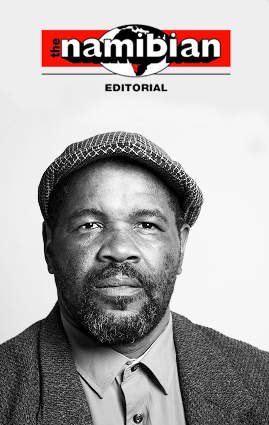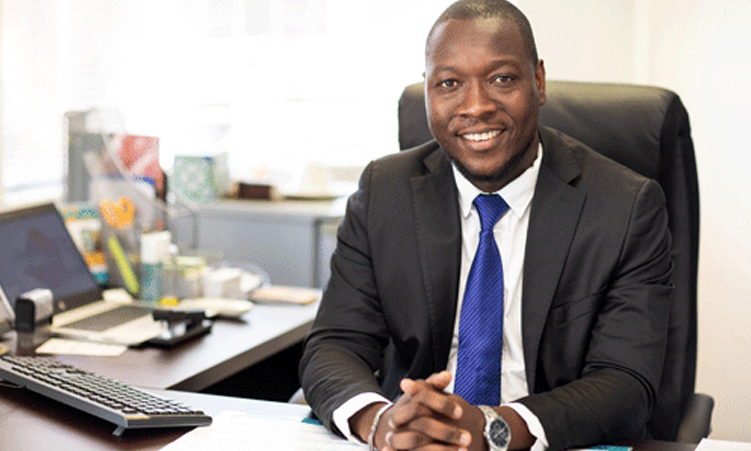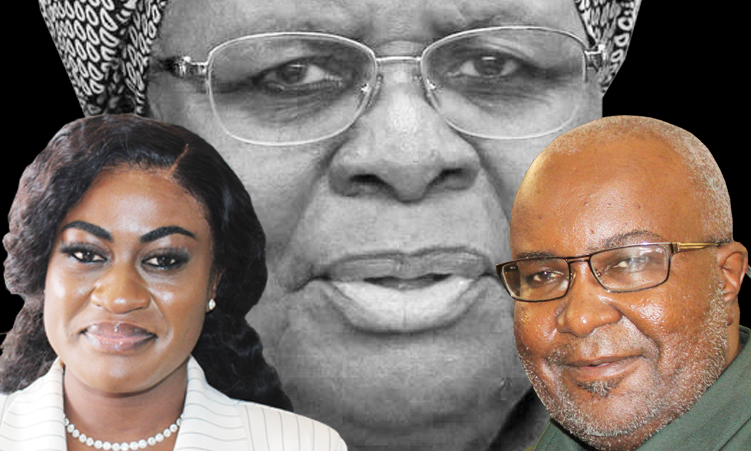DAVID Ndjavera, who died on 14 July 2021, a month before his 52nd birthday, was arguably the best film and stage theatre artist in Namibia. Ndjavera had just lost his wife Helen (50) to Covid-19 four days earlier.
She was a professional nurse for more than 25 years.
The couple’s 23-year-old daughter Maveya says Helen was building a clinic “out of her own pocket to help farmworkers and their children” at Epukiro settlement in the Omaheke region.
The actor was a lecturer at two universities and the College of the Arts.
Nothing can compensate for the devastating loss of both parents suffered by Maveya and her teenage siblings. It will be near impossible for outsiders to fill the gap.
It is also hard to imagine how to fix the profound socio-economic loss to several sections of the Namibian population who were benefiting directly from the wife and husband’s professional roles and productivity.
According to a long-time friend and fellow artist Lucky Pieters, Ndjavera’s last words while being rushed to hospital after 04h30 as he struggled to breathe were: “Please call the production manager to reschedule the shoot,” underlining his passion and hard work.
Ndjavera has been an artist since his teenage years. No number of people can immediately make up for his skills, experience, commitment, and consistent drive.
Namibia is also poorer for losing a qualified nurse of 25 years, who was using her meagre earnings to build a health facility for the poor.
Their skills were already in short supply before the advent of Covid-19, which has killed too many healthcare workers in about one year.
Sadly and extremely worrying for Namibia – already struggling with a shortage of skilled, experienced and highly productive citizens – the deaths in quick succession of the Ndjavera matrimony is not an isolated case of highly sought-after, talented and selfless people being lost to the country.
Among the more than 2 665 people killed by Covid-19 so far are a high number of people in the prime of their lives and at the height of their careers; even those of retirement age were still actively passing on invaluable lessons to the younger generation.
Namibia has lost people who were personally invested in their communities and the future of the country.
They include the police, cultural and traditional leaders, business, arts, politics, education and more.
Rebuilding societies will not be easy.
In these trying times, a proactive defensive approach is needed to ensure that Namibia is prepared for the expected next wave of Covid-19 to prevent more avoidable losses.
Moreover, Maveya’s brave pledge to look after her orphaned teenage siblings – four biological and two adopted – should be viewed as a cry for help.
Namibians, individuals and those in leadership roles, should not leave people like Maveya and her siblings to the vagaries of survival of the fittest.
The authorities should already begin to gather data about children left without a parent, or both, because of Covid-19.
At the very least, psychological and social support should be set in motion for the children and surviving parents.
Similarly, a comprehensive collection of information should be undertaken to assess the broader impact of the loss of productive members of society across the country.
If not already done, the Namibia Statistics Agency should adjust the upcoming population census to include data that would lead to a better understanding of the impact of Covid-19, followed by the best action to replenish lost skills, experience and productivity.
Academic institutions, especially the state-dependent Unam and Nust, must prove their worth by undertaking research and designing solutions.
Paying closer attention to what needs to be done for the recovery and rebuilding of the different facets of Namibia may be the most crucial aspect to whether Namibia gets back on the path of progressive development.
Stay informed with The Namibian – your source for credible journalism. Get in-depth reporting and opinions for
only N$85 a month. Invest in journalism, invest in democracy –
Subscribe Now!










